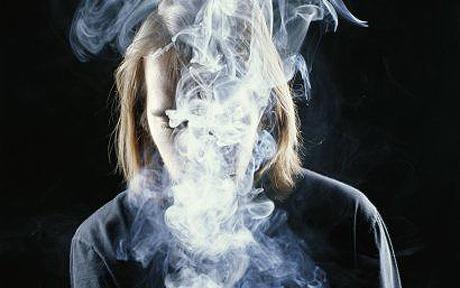Second-hand Smoke Linked to Mental Illness

A recent study showed that individuals exposed to high doses of second-hand smoke were 62 percent more likely to have emotional or psychological problems, or mental health issues, than individuals with minimal exposure were. The exposure increased the risk of being admitted to a mental health hospital by 300 percent, while smoking itself increased the risk of admission by 400 percent.
In the Archives of General Psychiatry. Dr. Mark Hamer notes that one U.S. study showed that 60 percent of non-smokers had “high” levels of exposure to second-hand smoke, consistent with living in the same house as a smoker or working in an area where smoking was permitted. The study measured cotinine, a nicotine byproduct. A simple saliva test for indicates the marker for nicotine exposure.
In one of the first studies to examine the mental health effects of second-hand smoke, Dr. Hamer and other researchers at University College in London followed more than 8,000 adult participants, including 5.560 non-smokers and 2,595 smokers. Of the non-smokers, 14, 5 percent reported mental health problems and there was a direct correlation, meaning that as exposure to second-hand smoke rose, so did incidence of mental illness. Those with significant passive exposure to nicotine were 62 percent more likely to develop mood disorders, panic attacks or other forms of mental illness. Risk of hospitalization was about 3 times as great.
Even after controlling for other factors like alcohol use and social status, passive smokers suffered more. In fact, non-smokers exposed to high levels of second-hand smoke showed more problems than smokers who had quit.
Dr. Hamer cautions that the study reveals a correlation, and does not prove that second-hand smoke causes mental illness. However, a number of studies link smoking and depression. Smoking had already been linked with other mental health disorders including panic attacks. In fact, half of the cigarettes in the U.S. are consumed by patients with diagnosed mental illnesses.
There is ample evidence that smoking exacerbates some mental illnesses including panic disorder, according to therapist Mike Karowski. Although patients may try to calm their nerves with nicotine, over time it has the opposite effect. Smoking has also been linked to depression, a condition that often occurs with panic disorder.
By Joni Holderman, [email protected], contributing reporter for Mental Health News.